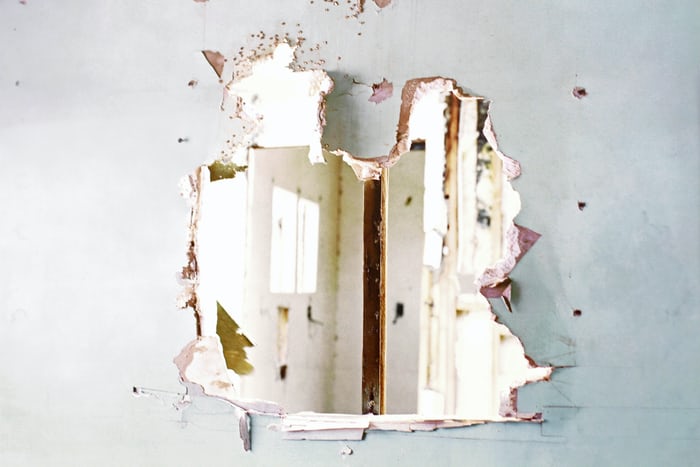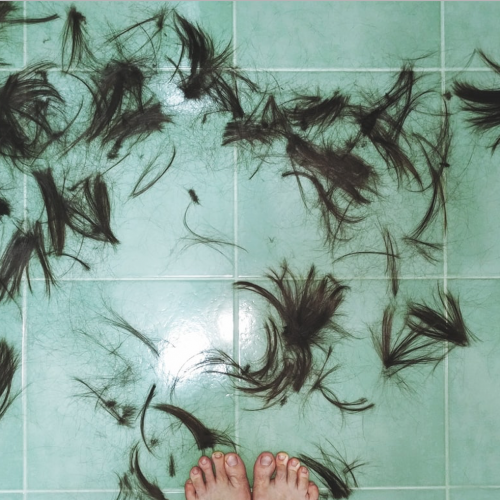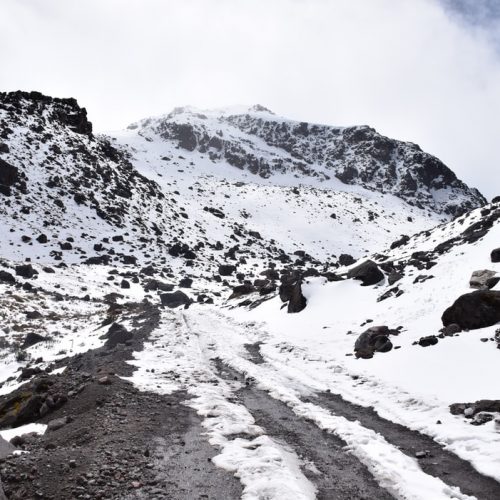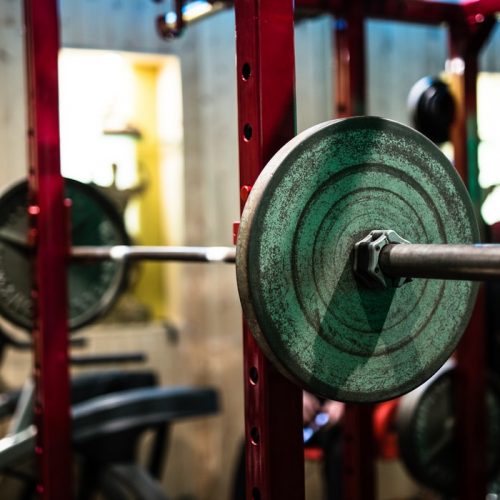I used to hide under the table when my father returned home from business trips. It was something I learned relatively late in childhood—if seven years old can be considered late. Before, the strategy had been simple: if he found me during one of his rages, I made myself as small as possible and disappeared. If his hand swung back as though to strike, I simply ceased to exist. When he slapped me or forced liquid dish soap down my throat I pretended that my body was made of air.
And then, suddenly, the idea came from out of nowhere. It would be like a game of hide-and-seek, except I wouldn’t be found. Perhaps if my father came home to an empty house, his fist would leave a cavern in the rough living room wall instead of my face.
When his key rattled in the front door lock, I threw myself under the kitchen table, hoping he would forget he had a daughter for the time being. My stomach clenched and my vision went haywire, the signs of a body rejecting itself. If I had a heads up, I might be able to smuggle my kid brother with me beneath the world of wooden mahogany paneling. I held him close to me and told him to shush. He clutched at his little wooden sword, sulkily. The floor was made of cheap tile, and crumbs dug painfully into my bare kneecaps and palms as I crouched, barely breathing in the shadows. Sometimes I did homework under the table too. My brother traced little designs with the point of his dull blade.
“You can hardly see anything under here,” my mother scolded vaguely, when she noticed my prolonged hiding. “He’s not even home. You can come out, you know.” Occasionally, I allowed her to coax me from my cavern. Other times I remained hidden, devouring my fingernails.
Sometimes my scheme worked. I heard the crashing and splintering of furniture, the sounds of doors being kicked in, the usual shouting. But I emerged from under the table untouched. Unscathed.
Other times it did not work. He would wrap me up in his arms, which I assumed were made of the strongest substance imaginable, and slam my body onto the bed, landing blow after blow as I shrieked for my mother. There is something very absurd about running and hiding when you know that ultimately you will be caught. That ultimately there is nothing you can say or do to persuade someone out of their wrath. That all you can do is wait for the beating to stop. When someone hits you, you cannot possibly exist to them. Even though their fist acknowledges the soft flesh of your cheek, they do not truly perceive you. And so I knew, from the time I was two or three, that my father did not see me. I was trained to exist as an abstraction, something more theoretical than temporal, more analytical than tangible.
It occurred to me, sometime between toddlerhood and adolescence, that being in possession of a body was a rather dangerous undertaking. One that I perhaps was not fit for. In the manner of a ship unloading its cargo into a tempestuous sea to rid itself of excess weight in times of necessary hastiness, I discarded the things that seemed the least essential. The extremities of my body came first. Everything but my head and my heart and the mess in-between. And at some point, I began to push more immaterial things overboard. But when you have to travel fast at a moment’s notice, you must travel lightly. Although outwardly I maintained my friendships and my grades, I found that I cared very little for anyone or anything. My anger disappeared into a long dark current, instantly forgetting itself. There was no feeling that emerged as I stared into the bruises that would bloom on my arms and thighs. My passion dried up under my father’s brightness. While other children my age hunched over drawings or insects or dolls with prettily made-up faces, I stared blankly out of windows, looking at nothing in particular. What was left was a perfect shell of civility.
Other girls would invite me over to their houses for sleepovers, and their parents would cook me dinner. I would come up with stories to entertain them until they fell asleep. In the ensuing silence, I would stare at their unfamiliar ceilings, feeling as though I had pulled off a heist. Somehow, I had tricked other people—real people with normal lives—into believing that I existed as they did.
Perhaps I did not trust the physical world, once I understood what it could do to me. Materiality itself seemed to be a hoax. If I looked at my thighs for long enough, they would disintegrate into little pixels. If I concentrated hard enough I could make myself dissolve. Alone in the backyard, making no noise and wandering aimlessly in circles, I stared menacingly at the flowers and the elms. What kind of world required someone to just accept the infinity of so much blue uninterrupted sky? A sadistic one, it seemed. Sometimes my mother joined me in the garden.
“Isn’t it beautiful,” she whispered, fingering lilac blooms and disappearing into rose blossoms. I nodded, numbly. I had no comprehension of beauty. If something was lovely, I reasoned, it was only because the viewers were projecting something of themselves onto it. A complex external remapping of their own interiority. And what did I have to project onto a flower? I had discarded all of the lush and frivolous things a long time ago.
Sometimes now, at twenty-three, I will submerge myself in the garden with my mother and brother. While they chatter, I look at the hyacinths erupting from the dark earth, pink and vivid like a fuschia or else the deep purple of an overripe grape. Sometimes I feel nothing at all. Sometimes I will look again, and feel a stirring. It is not much, but I hold onto it.
Katie Alafdal
Katie Alafdal is a queer, Persian writer and visual artist based in Los Angeles, CA. Their work has previously been published in Hooligan Magazine, Matchbox Magazine, and La Piccioletta Barca. They spend most of their days staring aimlessly into churning bodies of water, rereading Sophocles, and talking to flowers.





